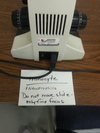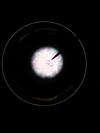Chapter 20-Blood Flashcards
(13 cards)
Leukocytes
granulocytes: -neutrophil -eosinophil -basophil agranulocytes -lymphocyte -monocyte
neutrophil
very tine light staining granules. nucleus is usually multi-lobed with lobes connected by thin strands of nuclear material. -50-70% of all leukocytes -phagocytic cells that accumulate in high numbers in early stages of infections
eosinophil
-large granules that appear pink or red when stained -nucleus often has two or three lobes connected by a band of nuclear amterial -contain digestive enzymes that are effective against larval form of parasitic worms -2-4% of all leukocytes
basophil
-large grannules deep blue to purple and are often so numerous they mask the nucleus -contain histamine (vasodilation), heparin (anticoagulant), serotonin -< 1% of all leukocytes
lymphocyte
cytoplasm stains blue -nucleus fills the cell leaving a thin rim of cytoplasm -cell slightly larger than RBC -accounting for 20-30% of all leukocytes -include B cells (release free floating antibodies that attack specific invaders) and T cells (target and destroy specific threats like bacteria and cancer cells)
monocyte
largest of leukocytes -2-8% of all leukocytes -macrophages when present at an infection site
erythrocytes
RBC -filled with hemoglobin -carry oxygen from lungs to body cells -also transports about 20% of co2 released by tissue cells back to lungs women: 4-5 million RBCs per cubic millimeter blood men: 5-6 million higher; polycythemia may be cause lower; some type of anemia
thrombocytes
platelets -cytoplasmic fragments that contain enzymes and no nucleus -important for proper blood clotting and repair of damaged blood vessels -number too high, spontaneous clotting may occue -too low, clotting may not occur when necessary











